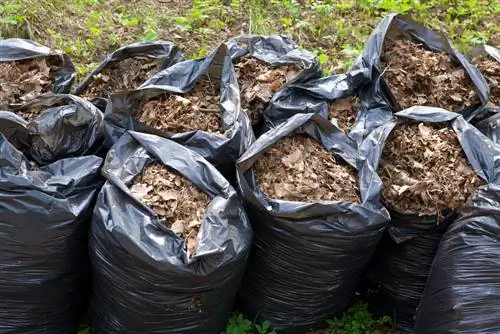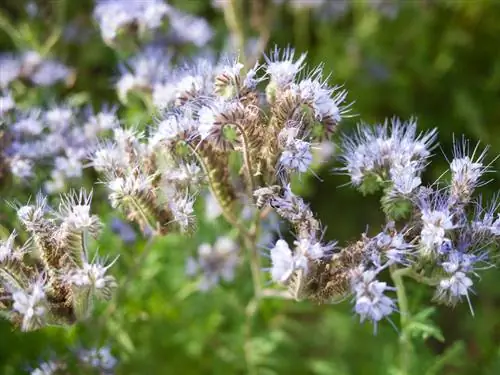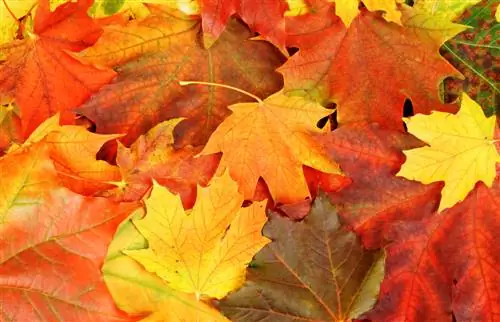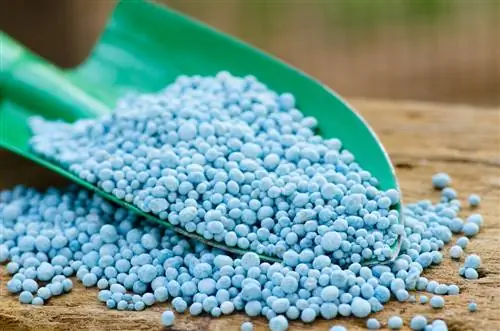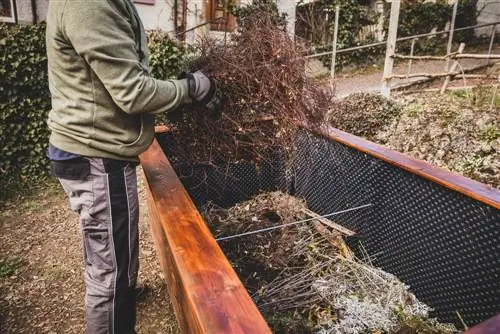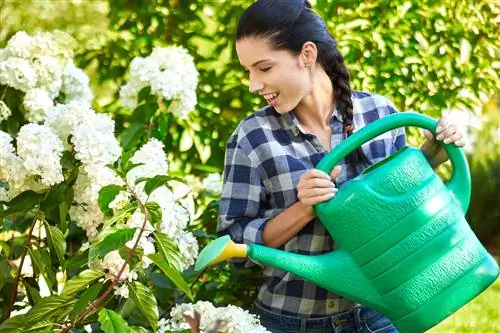- Author admin [email protected].
- Public 2024-01-10 23:11.
- Last modified 2025-01-23 11:22.
Some fertilizers may help a particular plant grow, but the ingredients are not always environmentally friendly. Leaves, on the other hand, are completely natural and do no harm to your garden. There is even an advantage for you: you save a lot of time by simply leaving the leaves lying on the beds.
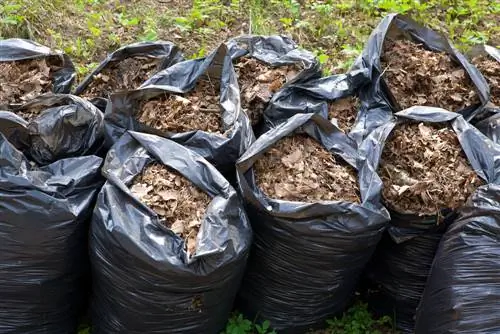
How do I use leaves as fertilizer?
Use leaves as fertilizer: Collect leaves in bags, add compost accelerator as well as horn or stone dust and close the bags. After 8-12 weeks of decomposition, the leaves have become nutrient-rich garden soil that can be used as a natural fertilizer.
How does fertilizing with leaves work?
A layer of leaves provides a protected habitat for numerous small microorganisms. These feed on the leaves and decompose them in this way. The leaves are converted into humus, which is distributed in the soil. Leaves thus enrich the earth through a completely natural process.
Make fertilizer from leaves
- Put the leaves in bags.
- Add some compost accelerator.
- This natural remedy contains fungi and bacteria that promote decomposition.
- Also add horn or stone powder.
- In this way you increase the nutrient content.
- Seal bags.
- Prick small holes in the bags for ventilation.
- After 8 to 12 weeks, the leaves will have decomposed into garden soil that you can use as fertilizer.
What to pay attention to?
Since decomposed leaves are one hundred percent natural, you can hardly harm your plants with an overdose. However, you should not store all the leaves in the compost heap. To maintain the ecosystem, it is important that it consists of a maximum of 20% rotted leaves. If the amount of leaves in the compost heap predominates, the efficiency of using it as fertilizer is reduced. This is because the trees withdraw almost all of their nutrients into the trunk before they shed their leaves. Only the addition of organic waste makes the leaves nutrient-rich and therefore valuable for your plants. In addition, no moisture should form on the compost heap, as moisture leads to mold.

